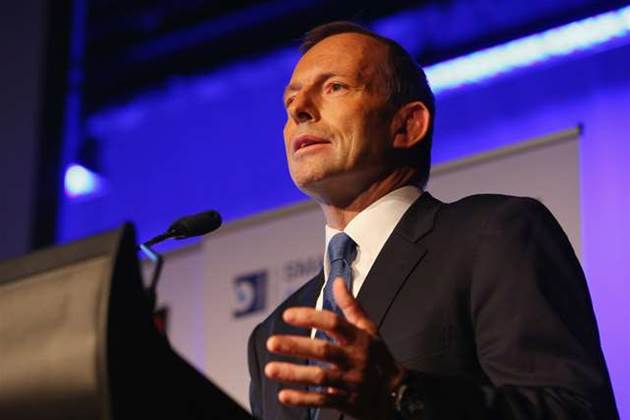Beyond shifting the national broadband network away from a majority fibre-to-the-premise model, the new Abbott-led Government is expected to make several changes to the government's IT approach following its election win on Saturday.

The Coalition’s IT-related policies in the lead-up to the election were thin on the ground, but it did announce a handful of plans for the local tech sector, most significantly involving government procurement of IT services.
The most major change to the previous Labor Government’s IT policies will include the re-working of the national broadband network.
The Coalition this year announced plans to deliver a lower-cost and faster version of Labor’s NBN by deploying fibre-to-the-premises for 22 percent of Australia, compared to Labor’s 93 percent.
The Coalition’s NBN will be 71 percent fibre-to-the-node.
It will serve 7 percent of Australia with satellite and wireless, as Labor had planned.
The Coalition costed its policy at $20.4 billion until completion in 2019, compared to Labor’s costed $37.4 billion for a completed NBN in 2021.
Incoming Communications Minister Malcolm Turnbull has recently indicated the Coalition would consider rolling out more FTTP "if the price is right".
Turnbull, and Prime Minister elect Tony Abbott will need to renegotiate the $11 billion agreement with Telstra the previous Labor Government signed with NBN Co.
The Coalition has indicated it won’t pay extra for Telstra’s copper and expects the telco to hand over access or ownership of its last-mile copper for no additional money. It expects the existing $11 billion deal to cover access.
"Their copper network in the context of an NBN world is of no economic value, it can't be used anymore, so I'm very confident that we can acquire access, ownership if you like, of the last mile copper for no additional payment," Turnbull told Sky News last month.
Telstra has also said while it is willing to discuss the form the rollout will take, it is not willing to renegotiate the value of the deal.
"We have a contract with the government and we know what value we need to participate. And that's really the end of the story," Telstra chief David Thodey told The Australian in March.
"If there is a different way to make up that value, we are happy to talk about it."
Turnbull also recently hinted at plans to potentially force Telstra to demerge its hybrid fibre-coaxial (HFC) network as a separate business, in order to allow it to remain structurally separated and still operating the HFC network.
The Coalition has previously promised to stop work during the first 60 days of taking office in order to complete a cost benefit analysis and review of the NBN.
Government IT
Other IT-related policies included a promise to introduce a new IT leadership hierarchy across Government with the Department of Prime Minister and Cabinet given the ultimate say on IT decisions.
The Coalition said it would also elevate the status of the Australian Government Information Management Office (AGIMO) to an advisory body to the Department of Prime Minister and Cabinet, despite remaining a function within the Department of Finance.
It also promised to establish an Australian Government ICT Advisory Board (AGIAB), made up of members of the private sector, which would provide advice to Cabinet, agency CIOs, AGIMO and the Secretaries ICT Governance Board (SIGB).
Both AGIMO and the AGIAB would advise the PMC.
Tony Abbott recently announced the Coalition would implement one central panel for all IT procurement across government. The panel would be run by the Finance department and would include all existing approved suppliers.
The Coalition has also promised to undertake an audit of all ICT spending over the last three years.
Turnbull recently outed himself as a fan of the “cloud-first” model of procurement, revealing to iTnews he would like to see the progress towards a local cloud-first approach greater and the take-up more aggressive.
The Labor Government introduced a National Cloud Computing Strategy which mandated that agencies consider public cloud services first for new IT procurements. It is understood the strategy will be retained in some form under a Coalition government, with some tweaking.
Mobile, filters and more
The potential for creating a second stream of the research and development tax incentive will be considered by the new government, based on the criteria of the former R&D Tax Concession prior to the Gillard government’s scheduled 2014 changes.
Turnbull has also indicated his support for an international agreement for global discourse on cyber espionage.
The Coalition has not yet articulated a policy on cybercrime, nor on the issue of Australia’s mobile spectrum, despite criticising the Government’s “failure” to sell all the 700 MHz spectrum put to auction earlier this year.
However, it has pledged $100 million to fix mobile blackspots in Australia. It is also looking to make it easier for commercial telcos to co-locate equipment on NBN-owned monopolies.
There won't be a default filter placed on fixed-line broadband services and smartphones though, despite a last-minute policy that was quietly pushed through without the approval of Turnbull and subsequently canned.



_(20).jpg&h=140&w=231&c=1&s=0)
_(23).jpg&h=140&w=231&c=1&s=0)






 iTnews Executive Retreat - Security Leaders Edition
iTnews Executive Retreat - Security Leaders Edition
 iTnews Benchmark Awards 2026
iTnews Benchmark Awards 2026
 iTnews Cloud Covered Breakfast Summit
iTnews Cloud Covered Breakfast Summit












_(1).jpg&h=140&w=231&c=1&s=0)



